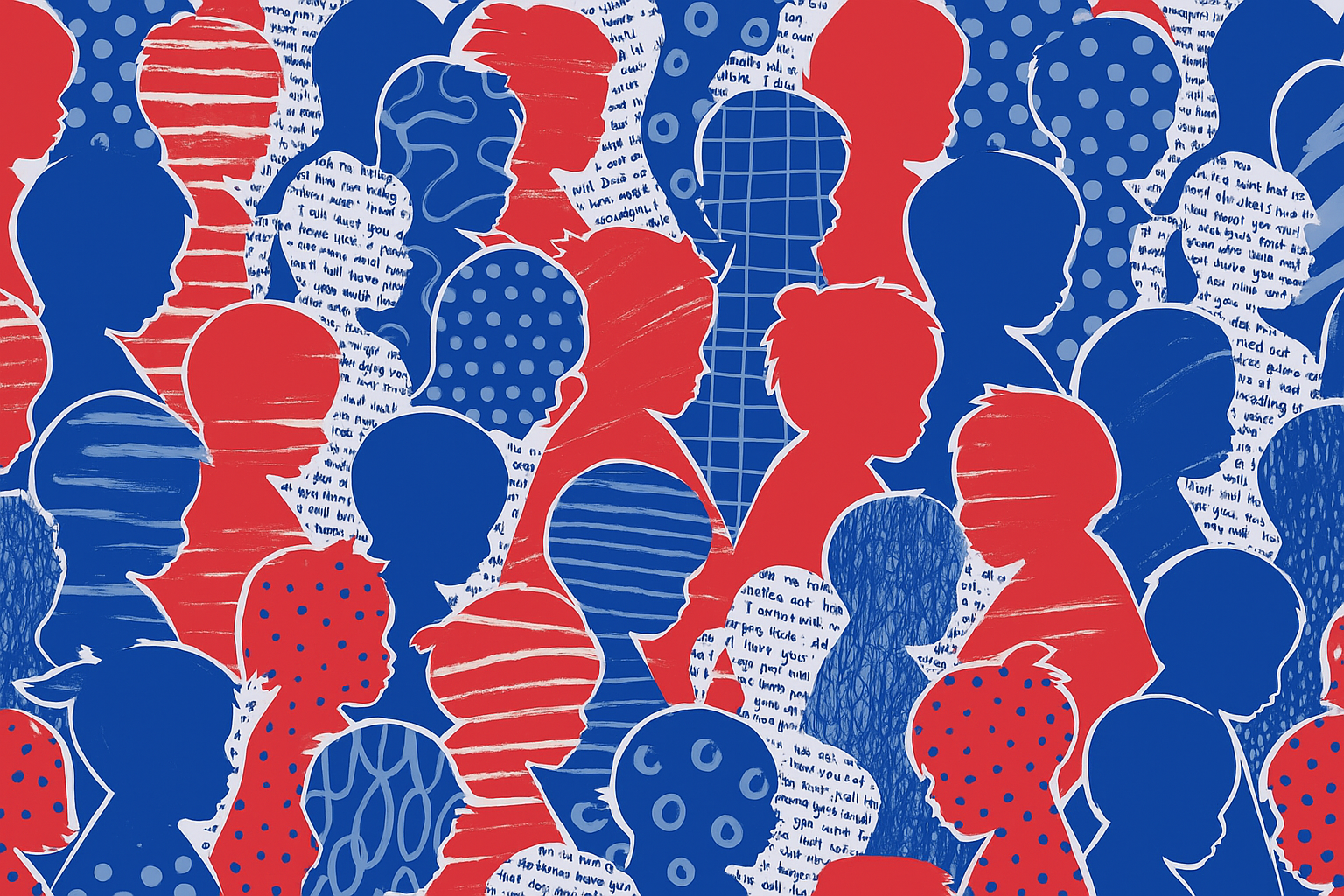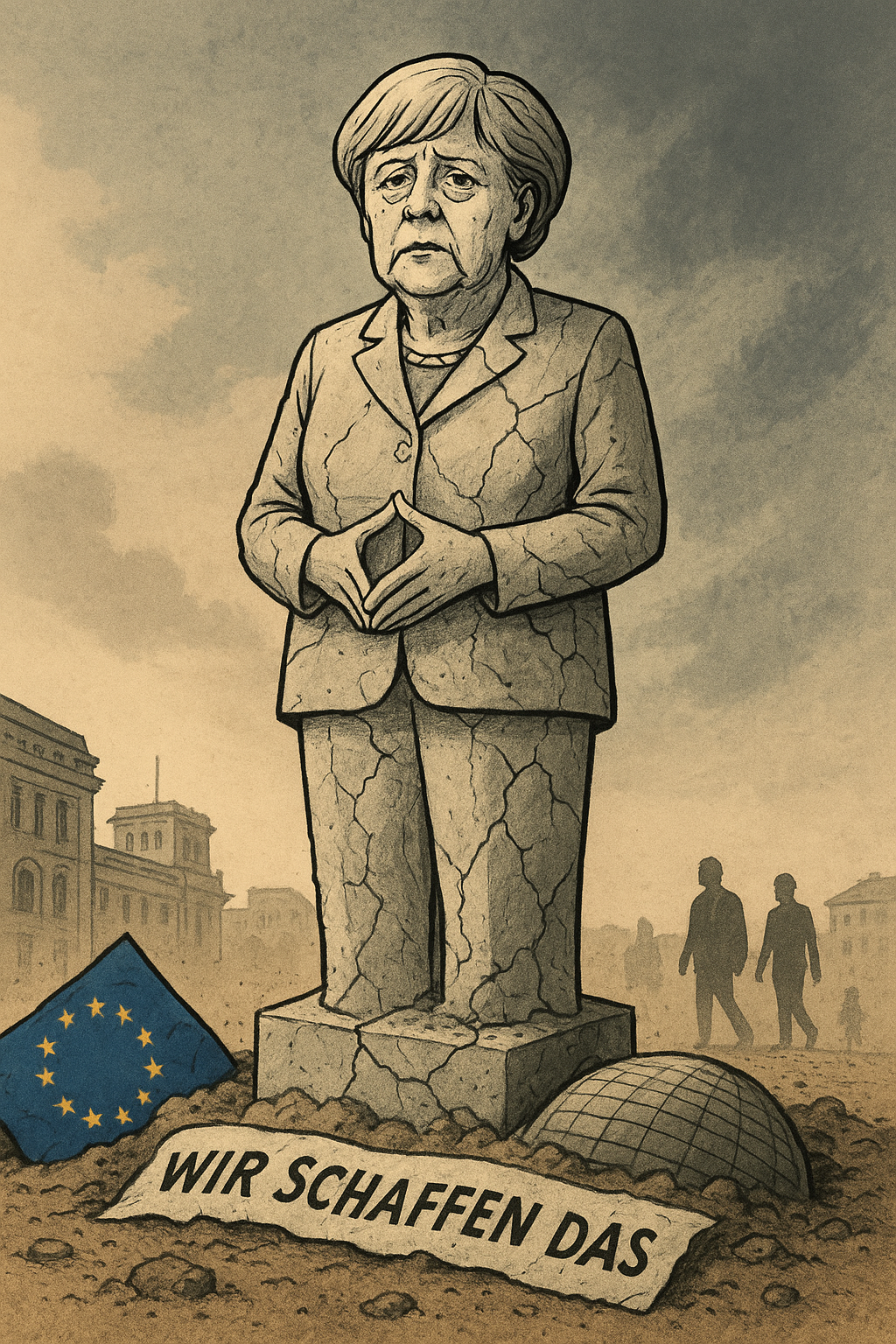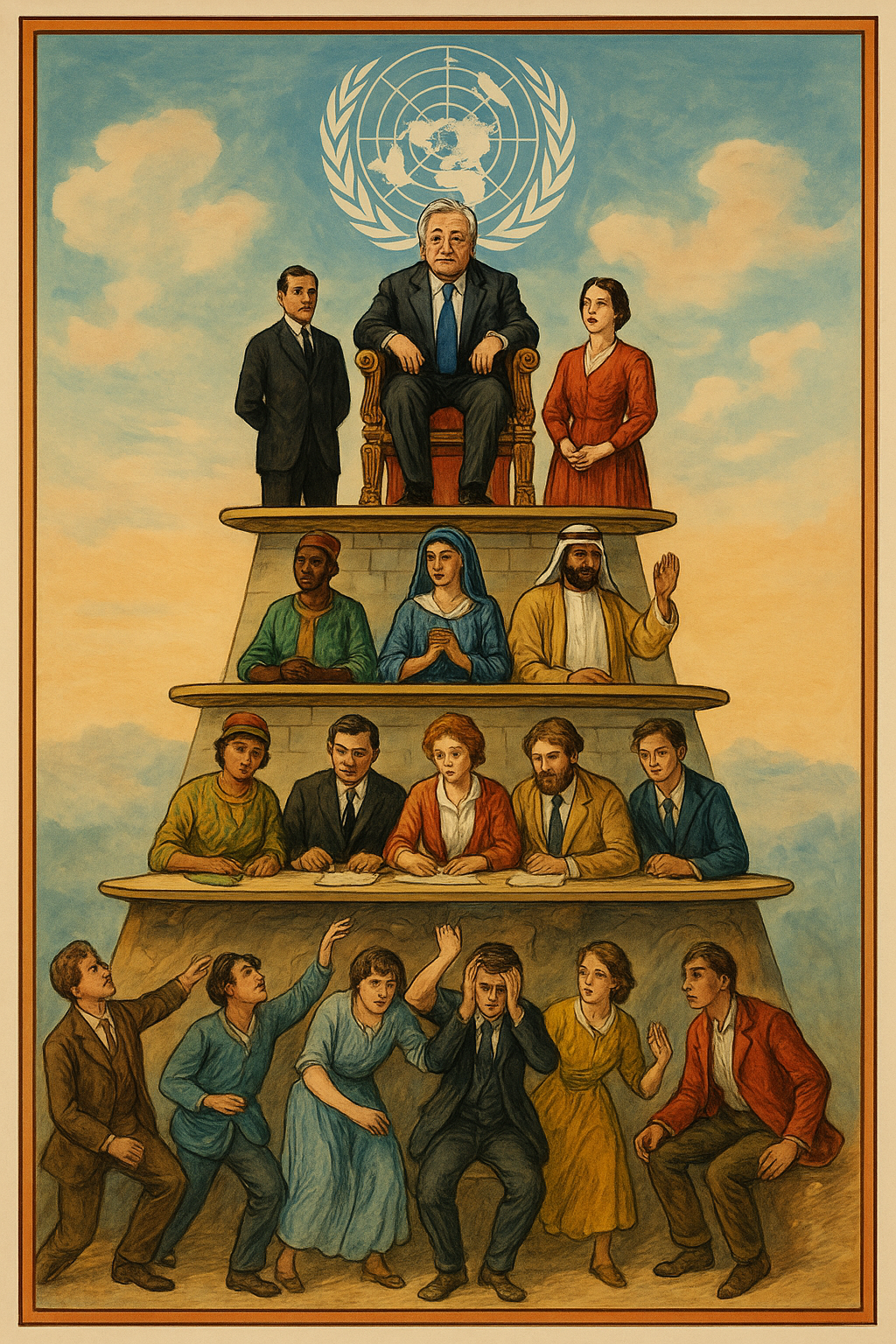The American Interest, March 31, 2016
Hailed as a prophet and reviled as a racist, Jean Raspail novelized Europe’s immigration crisis—forty years before it happened.
George Orwell, which is to say Eric Arthur Blair, said and wrote many memorable things. One of them goes as follows: “Saints should always be judged guilty until proved innocent.” Flipping the ideal of justice enabled Orwell to aim his wit at an enduring truth about the often wayward consequences of good intentions, of whose dangers one should be cognizant when encountering “saints” wearing such intentions on their sleeves.
In some ways, but certainly not others, Orwell has a latter-day French doppelganger in Jean Raspail, who, by means of one of his novels, sideswiped American history in the early 1980s. One day, so the story goes, the flamboyant head of French counter-intelligence, Count Alexandre de Marenches, met his friend Ronald Reagan in the White House to discuss the Red Army’s war in Afghanistan. At the end of the conversation, the Count handed the President a French novel in English translation, saying: “You should read this.” French sources say that Reagan reported back, reviewing the book in glowing terms.
The book in question was Raspail’s fourth novel, the epic Le Camp de Saints (“The Camp of the Saints”), first published in 1973. At the time, the novel was admired by some and pilloried by many. It did not so much cause division as reflect an existing if still inchoate divide over how many non-European immigrants European cultures could and should absorb without losing their cultural souls in a broth of multicultural homogenization. In a sense, Raspail was the French Enoch Powell, whose famous 1968 “Rivers of Blood” speech may have served as Raspail’s inspiration, along with other, more obvious French occurrences of that same year.
It is hard therefore to know what Reagan’s positive review meant. Raspail seems to have really been (and may still be at age 90) a racist or something uncomfortably close to it, and Reagan was not. Reagan was the man, recall, who tried to overcome the Republican Party’s estrangement from African Americans, bothfor reasons of political calculation and also because he believed sincerely that the cultural conservatism of most American blacks made them natural allies of the GOP. Reagan’s mature politics alighted somewhere fairly far to the Left of Raspail’s, who can perhaps best be described as a reactionary conservative, the last of the royalists Chouan who fought the French Revolution, and somewhere less far to the Right of Orwell’s, a devoutly anti-Communist social democrat. Maybe Reagan was just being polite.
Whatever the truth, Le Camp de Saints is back in play. The novel has enjoyed a renaissance this autumn as a commentary on Europe’s ongoing refugee crisis. It has been reprinted by John Tanton’s Social Contract Press and is now available in Italian, Dutch, Spanish, Portuguese, Polish, and Czech—as well as English—translations. Even before its recent revival it had sold more than half a million copies through 2006. Fortunately or not, it looks like sales can only rise as the migrant crisis deepens and endures. As before, too, the more those who excoriate Raspail get emotional, the more they make those on the other side of the divide want to read him.As before, too, the more those who excoriate Raspail get emotional, the more they make those on the other side of the divide want to read him.
When the book first came out, as already noted in passing, it received table-thumping applause on the one side and saliva-spurting denunciations on the other, both from predictable quarters. Opponents, led by Le Monde editor Laurent Joffrin, claimed that the book was racist. Raspail has insisted as recently as this past September that he is not a racist, but then of course he would, wouldn’t he? This has not ended the matter. For although the book probably did not meet criteria for racial hatred in the legal sense, the conflict within it is portrayed as being between races, not between cultures. Non-whites are consistently referred to in negative terms.1 This makes the book highly objectionable even if not plainly racist.
For that reason alone one may bemoan its popularity. The real question at issue is whether there is any way to balance, morally and practically, two social virtues: generosity and compassion on the one hand, and integral cultural community on the other. Must the tension between the two be complete; must the struggle be zero-sum in character? Or, put a little differently, is it possible to be good to others without being excessively selfless, on the level not only of individuals but also of communities?
The answer had better be “yes,” but even if it is, it’s not an easy answer to find. The initial European (read: German) response to the migrant crisis arising most proximately out of the Syrian civil war was so far unbalanced to one side that it has provoked an equally imbalanced reaction. You don’t have to be a racist to care about integral community, but when you ignore this second social virtue, you provoke racism in those who believe they have been threatened—and you drive them to read and applaud books like Le Camp de Saints.
So what tale does the novel tell? The essence of the plot is that wild-eyed, saintly European activists encourage a million underfed Indians to set course for the West in a fleet of rusty vessels. After being rejected everywhere else, the flotilla finally anchors off the southern coast of France, demanding permission to come ashore. The French President is torn between his humanitarian instincts and the devastating consequences for the homeland if he fails to be hard-hearted. He chooses a half-measure: He throws the dilemma into the lap of the army, vaguely encouraging the soldiers to “follow their conscience.” They do, and the state’s monopoly on violence predictably falls to pieces.
Fateful consequences ensue when the well-meaning activists who have fought and won the media campaign over the flotilla demand that “the oppressed” be given residence, then are themselves trampled to death when the masses surge ashore. It is only the first wave; tens of millions of boat people follow in its wake.
The narrative alternates between French reactions to mass immigration and the attitudes among immigrants. The latter have no desire to become French. They just want the prosperity they lacked in their homeland. Raspail’s main thesis—if one might call it that—is that the idea that the West, and in effect only the West, has a duty to make up for the world’s injustices is fundamentally flawed. Such a mindset will lead to the destruction of the West, he argues. In this way, Le Camp de Saints can be read as the antithesis to Frantz Fanon’s 1961 classic The Wretched of the Earth, which was as racist in its own way as Le Camp de Saints was accused of being a dozen years later.
In Raspail’s novel the Global North is overwhelmed by a wave of immigrants from the overcrowded Global South. In the final act, Switzerland stands alone. This is where Raspail’s fictional author Dufort—for the book takes the general form of a roman à clef in which Dufort is Raspail—writes down his records to inform future generations of what really happened before the story is rewritten by Europe’s new residents. When the international community isolates Switzerland as punishment for its refusal to open its borders, Swiss are ultimately forced to capitulate. The West crashes and its ancestral history and civilization is lost, just as irrevocably as that of Byzantium.
The book’s first chapter is, in the literary sense, the best. A retired literature professor sits in the villa that has been the family hearth since 1675; he looks down on the massive refugee flotilla thinking that “if, under the circumstances, the proverb is right, and if a door really has to be open or shut….” Raspail’s professor finds that the combination of self-loathing and anti-racism has so shattered the European self that its very sense of self-preservation is weakened.Raspail’s professor finds that the combination of self-loathing and anti-racism has so shattered the European self that its very sense of self-preservation is weakened.“In their case it wasn’t a matter of tender heart, but a morbid, contagious excess of sentiment ….”
Raspail’s professor has his scholarly reflections interrupted by a young radical who proudly declares that he has come to rob the house because “[m]y real family’s all the people coming off those boats.” He is looking forward to “sleeping with the first one that lets me, and I’ll give her a baby. A nice dark baby….And after a while I’ll melt into the crowd.”
“Yes, you will disappear,” replies the professor. “You’ll be lost in that mass. They won’t even know you exist.”
“Good! That’s just what I’m after.”
When the civilizational collapse that the professor could reconcile himselfwith intellectually becomes a physical threat, he gets his gun and shoots to kill. Thus Raspail takes ample opportunity to illustrate the hypocrisy of the salon-crowd boosters of radical activists, not as “the homage that vice pays to virtue,” as his forebear La Rochefoucauld famously put it, but simply as rank dishonesty.
Such a mindset is not new, nor of course is it restricted to fiction. In some ways, Raspail’s professor resembles Umberto Eco as the European intellectual par excellence as he appeared, just a few months before his passing, in a June 11, 2015 interview with the Danish newspaper Politiken. In his home, surrounded by matchless Western heirlooms and with armed guards at the gate, Eco philosophized that a large enough number of refugees will bring the end of the Europe we inherited, a price he in no way finds too high to pay for our “European values.” Eco chose to hope for the best, and complimented his African servant for her Italian spirit—after she had left the room, of course.
And there are always some who feel that the barbarians are already at the gates. Niall Ferguson has recently compared Europe’s current state to Rome just before its fall.” Raspail ends his book with the famous sentence: “The fall of Constantinople was a personal tragedy that happened to us all, only last week.” Ferguson and Raspail both walk in the footsteps of Oxford historian Arnold Toynbee, who wrote in A Study of History that civilization fails when it ceases to exist in the minds of its own citizens. “Civilizations are not murdered,” wrote Toynbee, “they commit suicide by failing to meet their challenges.”2 But alas, one of those challenges is to survive without becoming bad people. For the true Western heirs of Christendom and the Enlightenment, survival alone is not enough.
Jean Raspail was an unexpected source for conservative cultural pessimism. Before his fourth novel made a splash, he was best known as a supplier of witty travelogues—a sort of French P.J. O’Rourke. One that comes to mind is his account of the “war against illiteracy” in Anastasio Somoza’s Nicaragua, which consisted entirely of hanging up posters stating: “Learn to read!” (True story.) Raspail was a connoisseur when it came to the world’s less-traveled parts. He claimed that it was precisely this experience of endangered peoples that inspired him to write Le Camp de Saints. He openly sympathized with them; he simply did not believe that it was the West’s obligation to redeem them. In other words, he recognized a genuine dilemma.
Perhaps that is why, these many years later, parts of the book seem to be somewhat prophetic. Raspail anticipated well the emotional roller coaster on which humanitarian joy is replaced by frozen panic. He describes decades before its time the current beggar-thy-neighbor perfidy in which states funnel immigrants to the next border. He defines the anguish and uncertainty about whether the effects on the welfare state, the nation, or the culture are acceptable factors even to consider in an immigration debate that leading European media portray as a secular version of a biblical trial, in which righteous idealists oppose sinful conservatives.
As everyone now knows, Europe has seen the number of illegal immigrants crossing the Mediterranean rise to a point where Germany alone received more than a million asylum seekers in 2015. While all seem to agree that Europe cannot be the world’s lifeboat, Western Europe’s decision-makers so far have mostly followed their humanitarian impulses, knowing full well that the influx of migrants will exceed its ability to absorb them. Raspail’s description of feckless politicians will appeal to those today who call for genuine leadership and find little of it.Raspail’s description of feckless politicians will appeal to those today who call for genuine leadership and find little of it. Indeed, Le Camp de Saintsforeshadows many a European leader who publicly claims “Wir schaffen das“—roughly, “we’ll get it done”—but behind closed doors admits that they haves lost control.
Again, for better or worse—or both—Raspail expresses an un-hyphenated conservatism that is making a comeback in the European debate on thanks to the so-called Orbanites. Orbanites (after Hungarian Prime Minister Victor Orban) are attracted by Raspail’s unvarnished political message, which is disturbing. Le Camp de Saints is also a disturbing book in another sense: Blood, violence, and faeces metaphorically drip from the pages, and many readers flock to it as voyeurs to the scene of an accident. This is peculiar in a way, because beyond its attraction as a politically incorrect experience, the novel is no page-turner. It constantly shifts perspective, one moment assuming the voice of the French President, the next of an American researcher, the next of a journalist. As a literary structure, this works partially at best and for pickier readers not at all.
But grace is not the point here, either for the author or for the reader. Raspail never lets the reader forget that the blame for the catastrophe to hand lies with idealists who assumed the role of saints on the basis of banal moral dichotomies and the naive cosmopolitanism that goes with them. Here at least he is at one with Orwell, the author of perhaps the most famous allegory in all of English literature. That’s as it should be, for what started in 1973 as a roman à clef has somehow become for many anxious readers in 2016 a prophecy playing itself out day by day by nail-biting day.
Jean Raspail still lives in the Paris suburbs—he’ll be 91 years old this coming July 5. He comments on the ongoing crisis with the grim satisfaction people sometimes feel when their prejudices are confirmed. In an interview with Le Pointin September, he concluded, “What’s happening today isn’t important, it’s anecdotal, for we are only at the beginning.”
Do tell, Jean. If this is only the beginning, how will it end? Well, Le Camp de Saintstakes its title from Revelations 20:9: “And they went up on the breadth of the earth, and compassed the camp of the saints about, and the beloved city: and fire came down from God out of heaven, and devoured them.” When conservative French Catholic monarchists write novels, they don’t mess around with excessive subtlety, do they?
1Incidentally, a trait it shares with Frantz Fanon’s The Wretched of the Earth.
2Arnold J. Toynbee, A Study of History: Abridgement of Volumes I to VI (Oxford University Press, 1947), p. 273.




